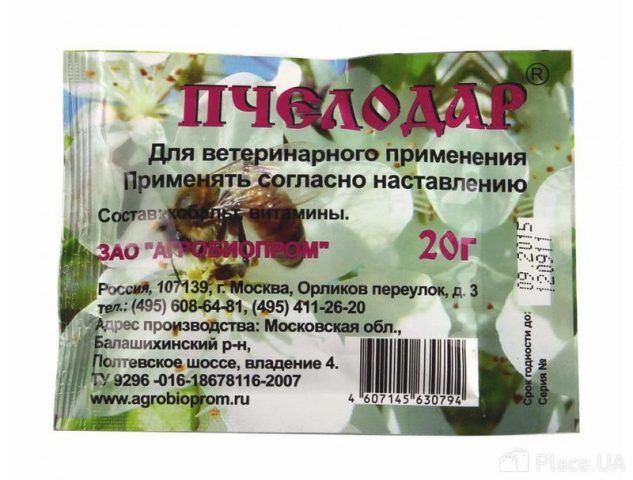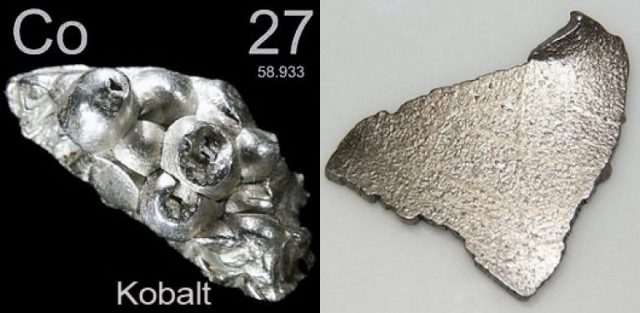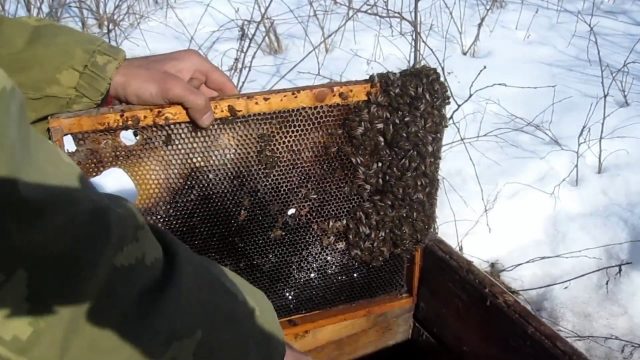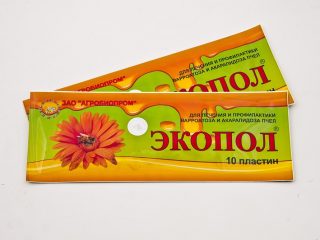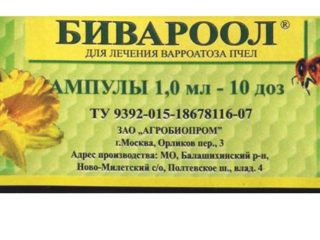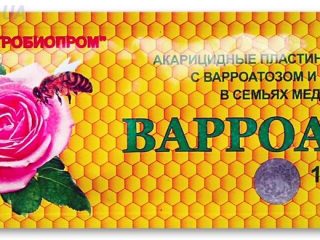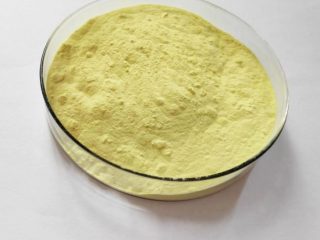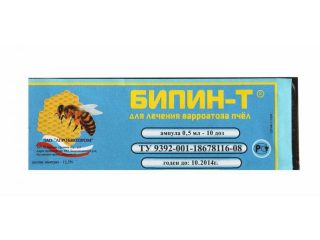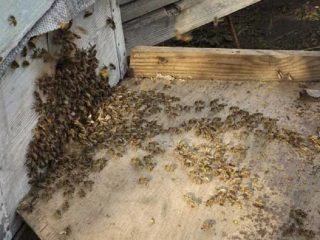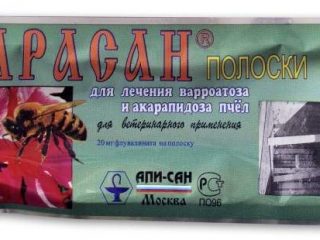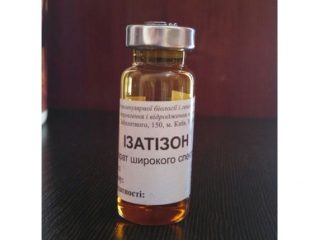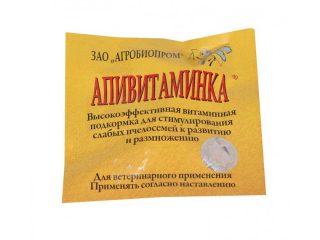Content
Due to a lack of vital vitamins and microelements in the body, bees get sick and their productivity decreases. Cobalt, which is contained in the Pchelodar vitamin supplement, is especially important for them. Read more about how to give the drug and in what doses.
Application in beekeeping
Beekeepers use "Pchelodar" as a preventive measure for infectious and invasive diseases that can be brought from other apiaries. And also to replenish cobalt reserves and increase the insect’s immunity.
The syrup has a positive effect on the development of bees, stimulates the growth of colonies, and increases weight brood at the larval stage.
How does cobalt deficiency affect bees?
Cobalt, which is included in the Pchelodar supplement, is vital for bees. Its deficiency makes it difficult to synthesize vitamin B12, which leads to protein and carbohydrate starvation. The young look lethargic and sick.Gradually, vitamin deficiency provokes weight loss and the development of anemia, which leads to death.
Composition, form of feeding
In addition to cobalt, Pchelodar contains vitamins and sucrose. Available in the form of a light yellow powder. Packaged in foil bags weighing 20 g.
Pharmacological properties
Vitamins increase the resistance of bees to unfavorable conditions and increase honey productivity. Cobalt is involved in hematopoiesis, improves the absorption of vitamins, and restores protein and carbon metabolism.
"Pchelodar" for bees: instructions
It is not difficult to feed bees with this medicinal drug. According to the instructions, “Pchelodar” is given together with sugar syrup. Experienced beekeepers recommend feeding insects in early spring and late summer, when colonies are preparing for winter.
The powder is given before the main honey collection if there is a lack of beebread or pollen in the hives.
Dosage, rules of use
"Pchelodar" is diluted according to the instructions for use, without violating the dosage. A highly concentrated solution has a bad effect on the health of bees and can be fatal.
Dissolve the drug in warm sugar syrup, which is prepared in a 1:1 ratio. Liquid temperature up to 45°C. For 10 liters of syrup use 20 g of powder.
Features of fertilizing:
- In spring, the syrup is poured into the upper feeders 2-3 times with an interval of 3 days. The consumption of the drug is up to 0.5 liters per family.
- To feed helping families in the early spring, syrup is given every other day for 2 weeks. Serving volume – up to 300 g.
- In the fall, after honey collection, “Pchelodar” is fed at the rate of 1.5-2 liters per family.
A weakly concentrated solution or insufficient doses do not have an effect, but make feeding useless.
Side effects, contraindications, restrictions on use
Giving syrup in large quantities or for too long is not recommended. Cobalt brings not only benefits to bees, but also harm. It has been noticed that violation of the instructions leads to a decrease in masonry. The queen bee may completely stop laying eggs, and the young larvae die. If the beekeeper continues to give the drug, then the death of the entire brood is observed.
No other side effects were identified. All honey that was collected during cobalt feeding is not harmful to humans if used correctly.
Shelf life and storage conditions
The shelf life of the drug "Pchelodar" is 2-3 years from the date of manufacture. However, you need to open the package with the powder immediately before preparing the syrup in the apiary.
The powder should be stored in a dry, dark place where the temperature does not fall below 0°C. In summer, the temperature in the room should not exceed +25°C.
Conclusion
“Pchelodar” is an effective fertilizer, the use of which increases the density of bee colonies, improves the immunity of insects, and reduces the risk of infectious diseases. However, in order not to cause harm, it should be used only in recommended doses.
